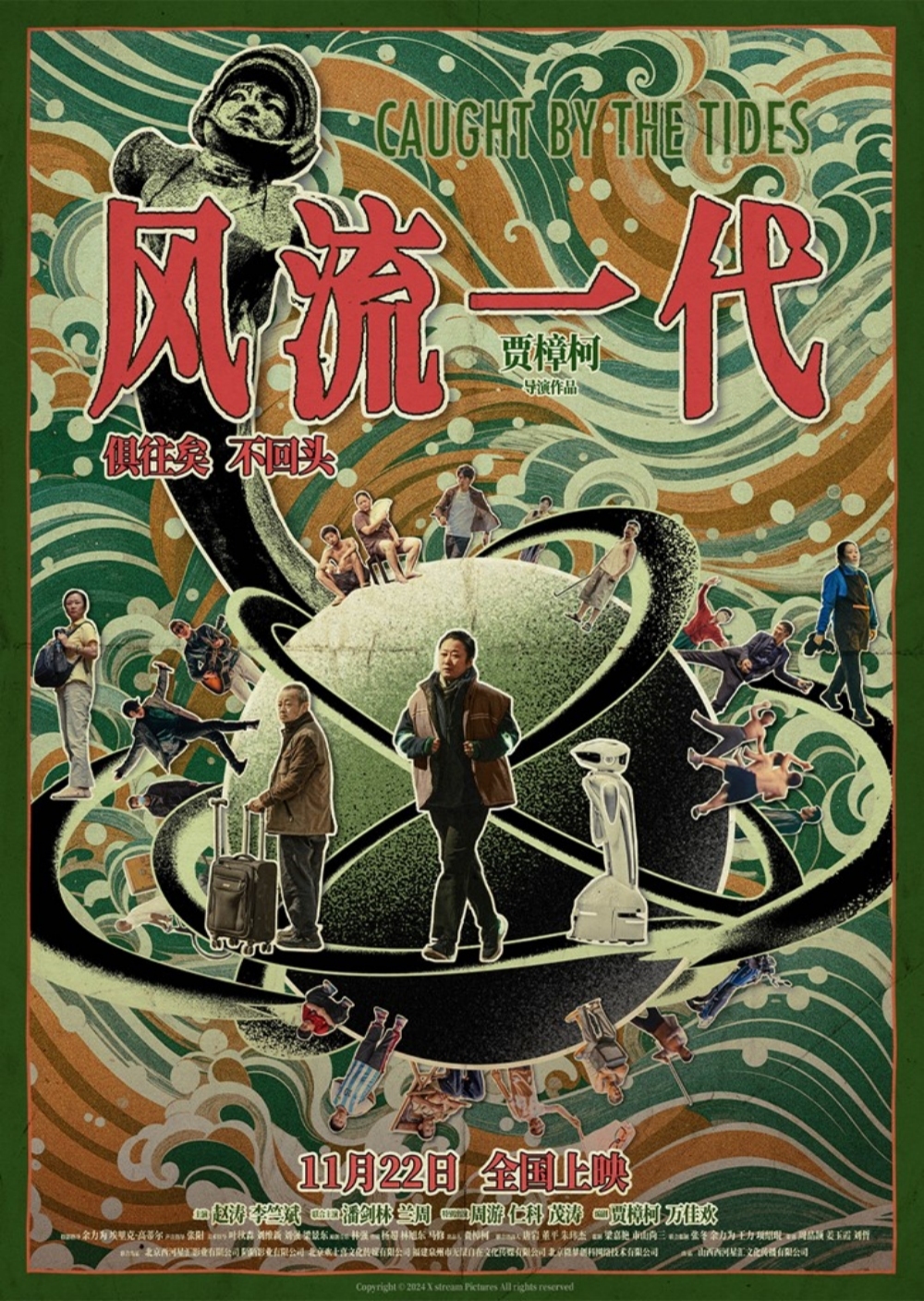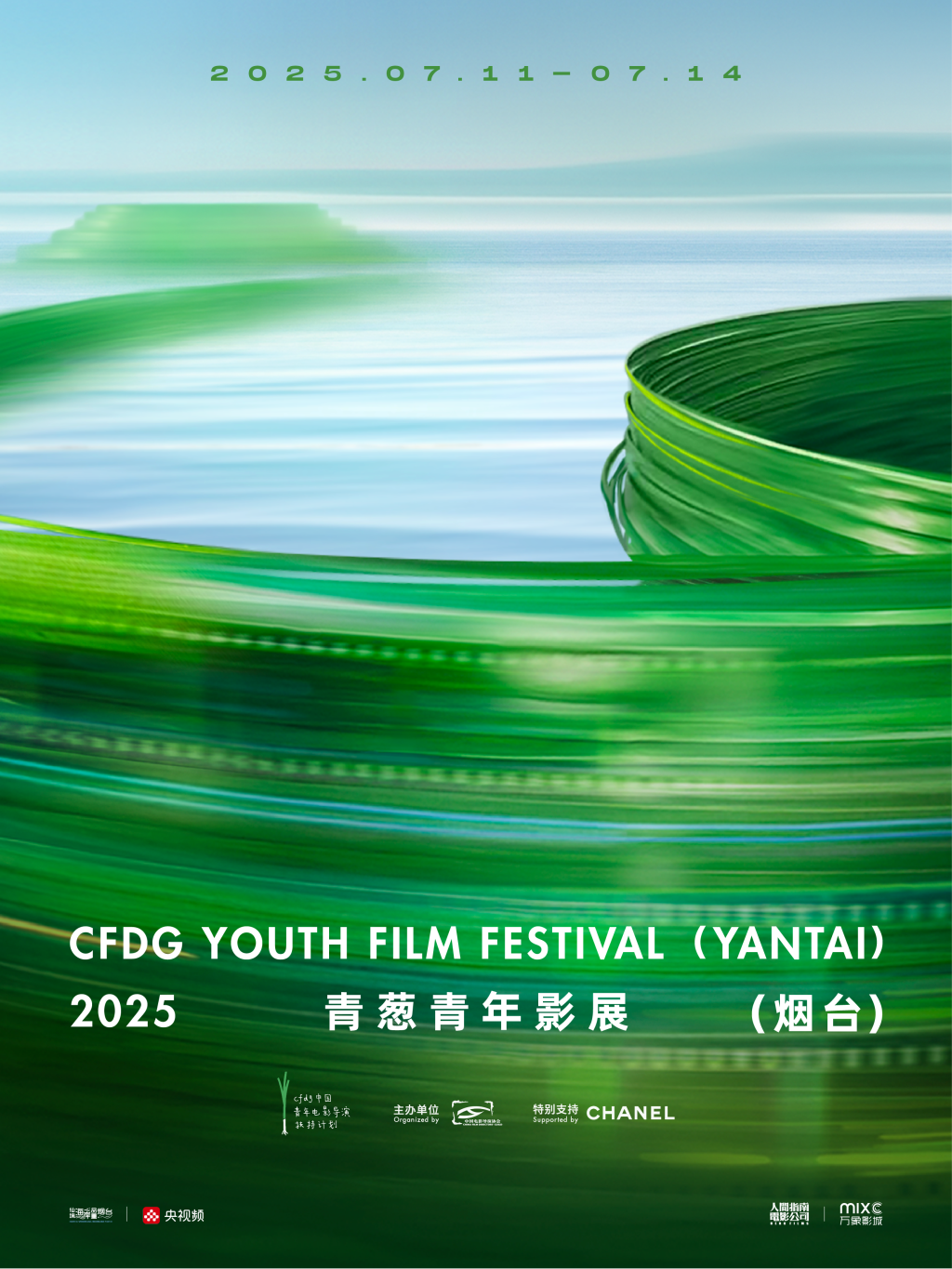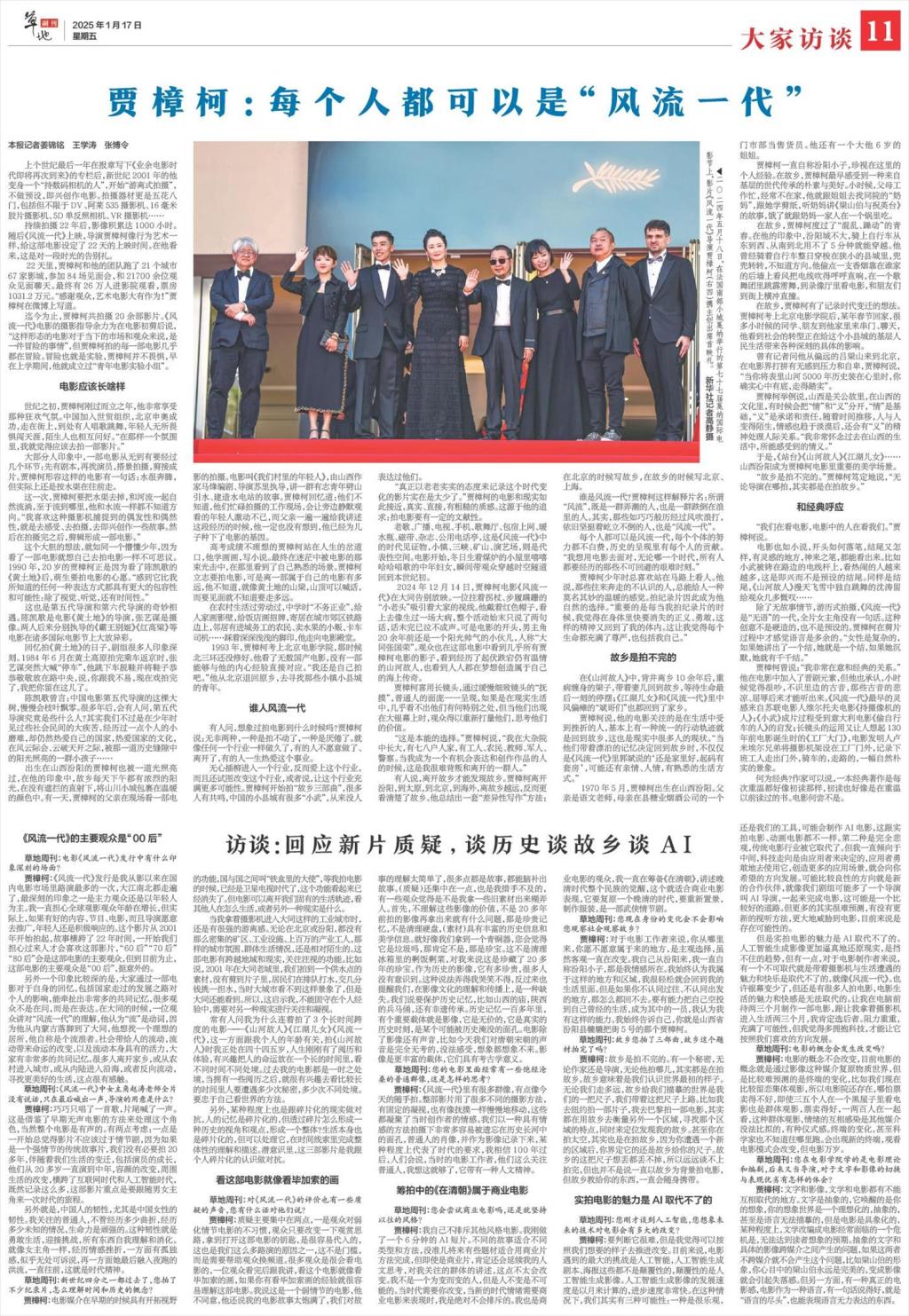
Note: This article contains spoilers
Jia Zhangke's new film, "Songs of a Generation," may spark some controversy, but I found it quite enjoyable. Many contemporary films focus on superficial pseudorealism; what we need are genuine and profound reflections.

Poster of "Songs of a Generation"
"Songs of a Generation" is a film that has been in continuous creation for 22 years. Since 2001, Jia Zhangke has harbored the idea of making a travel-themed film, initially titled "The One Who Holds the Digital Camera."
At the dawn of the new millennium, Chinese society underwent unprecedented changes, and the prevalence of digital technology opened new possibilities for filmmaking. Capturing the pulse of this era, Jia decided to shoot on a digital camera, spontaneously recording authentic fragments of life and the spirit of the times. He wandered through various cities with actors, capturing fleeting moments, ranging from people’s daily lives and entertainment to significant social events—all becoming the material for his lens.
"The One Who Holds the Digital Camera" spanned multiple years, progressing intermittently alongside Jia’s other film projects. During this period, Chinese society underwent immense transformation, from Beijing winning the bid for the Olympics in 2001 and the country's entry into the WTO, to the construction of the Three Gorges Dam and the wave of migration in 2006—these historic moments were uniquely recorded by Jia.
By 2020, the outbreak of the global pandemic prompted Jia to feel the arrival of yet another epochal shift, leading him to reevaluate the materials collected over the past two decades. These materials captured individual life trajectories as well as the broader shifts of the era. Consequently, he reedited this footage and created additional content set against the backdrop of 2022, resulting in "Songs of a Generation."
Although it lacks a traditional linear narrative, "Songs of a Generation" constructs an emotional journey of the protagonist Qiao Qiao (played by Zhao Tao) spanning over twenty years, through a montage of old footage combined with newly filmed segments.
Qiao Qiao embodies the "Songs of a Generation."
In an interview with Movie Network, Jia noted, "The term ‘Songs of a Generation’ is unique; it originated during my childhood. At that time, the country had just opened up, and the vitality of youth was unleashed, giving rise to the term. They yearned for change, propelled transformation, and were dissatisfied with the status quo, seeking greater personal freedom—hence the label ‘Songs of a Generation.’”
The "Songs of a Generation" refers to those who experienced the reform and opening up in their formative years, including Jia's peers, people born in the 60s and 70s, like Qiao Qiao and Bin Ge in the film.
The protagonists of "Songs of a Generation" are not merely "people in transformation," but primarily represent "the transformative era." The film captures the imagery of three pivotal years: 2001, 2006, and 2022.
In 2001, China stood at a historic new starting point, with Beijing successfully hosting the Olympics and the country formally joining the WTO—these major events signaled the dawn of a new development phase for China. Through a series of vivid life fragments, such as bustling street scenes, gatherings of youth in internet cafes and dance halls, as well as everyday items now difficult to find (like the Xiali car and 486 computers), the film presents a vibrant energy and captures people's infinite aspirations for the future and dreams of a better life, successfully immersing the audience in that lively, passionate era.

Qiao Qiao in 2001

A street scene in Datong in 2001
Against this backdrop, the love story between Qiao Qiao and Bin Ge (played by Li Zhubin) quietly unfolds, capturing their meeting, falling in love, and Bin Ge's decision to venture out into the world—filled with both drama and naturalness. Bin Ge's departure reflects a pursuit of personal ambition and symbolizes countless youth's courageous chase of dreams in that era.

Qiao Qiao and Bin Ge's parting
In the 2006 storyline, Jia turns the lens towards the Three Gorges region, especially Fengjie, which faced major changes due to the construction of the Three Gorges Dam. The film realistically and profoundly reflects the impact of large-scale infrastructure projects on individual lives through the daily lives and work environments of the migrants, capturing their complex emotions regarding an uncertain future. On one side is the vigorous modern development, and on the other, migrants' attachment to their homeland and uncertainty about the future.

Traces beneath the ruins
As Qiao Qiao sets off on a journey to find her boyfriend Bin Ge, her footsteps trace the banks of the Three Gorges, witnessing families forced to relocate due to the project, along with the myriad joys and sorrows of humanity. The relationship between Qiao Qiao and Bin Ge also faces significant tests during this period, with cracks emerging due to the changing times and differing personal choices.

Qiao Qiao in 2006
Thanks to the footage from 2001 and 2006, drawn from Jia Zhangke's earlier "unintentional" recordings, audiences may perceive a multitude of seemingly inconsequential details being woven into the film. However, that is not the case. These details may be just idle conversations on the streets, a casual gathering, or a seemingly meaningless quarrel, but all collectively construct vibrant life scenes. These scenes do not have explicit causal relationships but authentically reflect moments truly experienced by someone during that time; their accumulation and layering successfully sketch out a dynamic and contradictory social landscape.
The third phase brings us to 2022, where director Jia Zhangke focuses on the reunion of Qiao Qiao and her former lover Bin Ge against the backdrop of the pandemic and their respective life situations.
Qiao Qiao works in a supermarket in Zhuhai, leading a routine and monotonous life, until Bin Ge's sudden appearance disrupts her calm existence. This man, once deeply connected to Qiao Qiao, has now become a disheartened figure discarded by the era. He attempts to find new opportunities in the Greater Bay Area but struggles to adapt to the rapid changes of the world. The pandemic has deeply altered people's lifestyles, and the rise of digital technology presents new challenges, leading to significant shifts in people's values and lifestyles, with an increasing number of "leftovers" of the times.

Qiao Qiao in 2022

Bin Ge in 2022
Viewing "Songs of a Generation" from a linear time perspective, it seems more like a tale of the downfall of the "Songs of a Generation"—a generation that once "yearned for change, drove transformation, and was dissatisfied with the status quo" ultimately leads to ordinariness or hardship. They are the "Songs of a Generation," yet they are also "the little people" often overlooked in the annals of history.
In a conversation with Professor Yin Hong, Jia mentioned, "There are many ways to document an era. Clearly, history itself is the primary method, but why do we need art? It differs from any other recording method; it is tangible. Historical records are abstract and lack the details of life, especially the emotional specifics. What happened to people’s feelings and emotions during these changes? ... It doesn’t necessarily mean that a character like Bin Ge truly exists, nor does it mean Qiao Qiao is a real person. However, through fictional representations, we can document the life experiences of such real people. The only difference is that what we create is a tangible record."
Qiao Qiao and Bin Ge in the film are not real people, but their stories genuinely reflect the state of ordinary people's lives against the backdrop of the times. Qiao Qiao evolves from a naive, dependent girl into an independent, resilient woman, while Bin Ge represents those who lose their way amid societal changes and strive to find their self-worth.
In this sense, Qiao Qiao/Zhao Tao's face holds a certain historical significance. From youth to old age, Qiao Qiao's face captures the traces of time marked on countless ordinary faces; her expressions, demeanor, and every wrinkle stand witness to time and are a microcosm of individual fate. Millions of ordinary people quietly endure and bravely advance amid the currents of time; every viewer who has experienced or is experiencing these changes can see their own reflection and feel this shared emotion.

Qiao Qiao in old age
Thus, "Songs of a Generation" possesses a poignant power.
Rather than merely expressing so-called negative emotions, "Songs of a Generation" focuses on the relationship between the era and individuals, illustrating how the passage of time clearly reveals the impact of societal currents on individual lives across a long span. This does not deny individuals’ subjective agency in the face of a grand era, but it suggests that for most ordinary people, the scope of personal agency is quite limited in the face of societal forces. For example, you can determine the kind of person you want to be, like Qiao Qiao, whose resilience enables her to thrive in any circumstance, "Let the past go; do not look back."
However, the opportunities a person has, the ups and downs of fortune, the levels of wealth, and even the freedom one experiences in life, are largely dictated by the era. Characters like Qiao Qiao and Bin Ge, as well as countless ordinary individuals, may never have committed any wrongdoing; they have worked diligently and earnestly through their lives. Yet, as times change, the "Songs of a Generation" are ultimately discarded by the contemporary world, facing decline and solitude. Once, they gathered with youthful peers in dance halls, but now they are aging, silent, and struggle to survive at the bottom of society.
A reporter from Southern Wind Window wrote while interviewing Jia Zhangke: he mentioned once encountering a lady from the Republican era who had written just four words that left a deep impact on him: "Let nature take its course."
Everyone interprets "Songs of a Generation" differently, but what I gleaned from the film is the essence of "Let nature take its course." This is not a pessimistic fatalism but a calmness and resilience upon recognizing the overwhelming currents of the era against one's own insignificance, adopting a peaceful mindset in facing societal changes. Although we cannot fully control our ultimate circumstances, we can choose how to confront and respond; even if we


